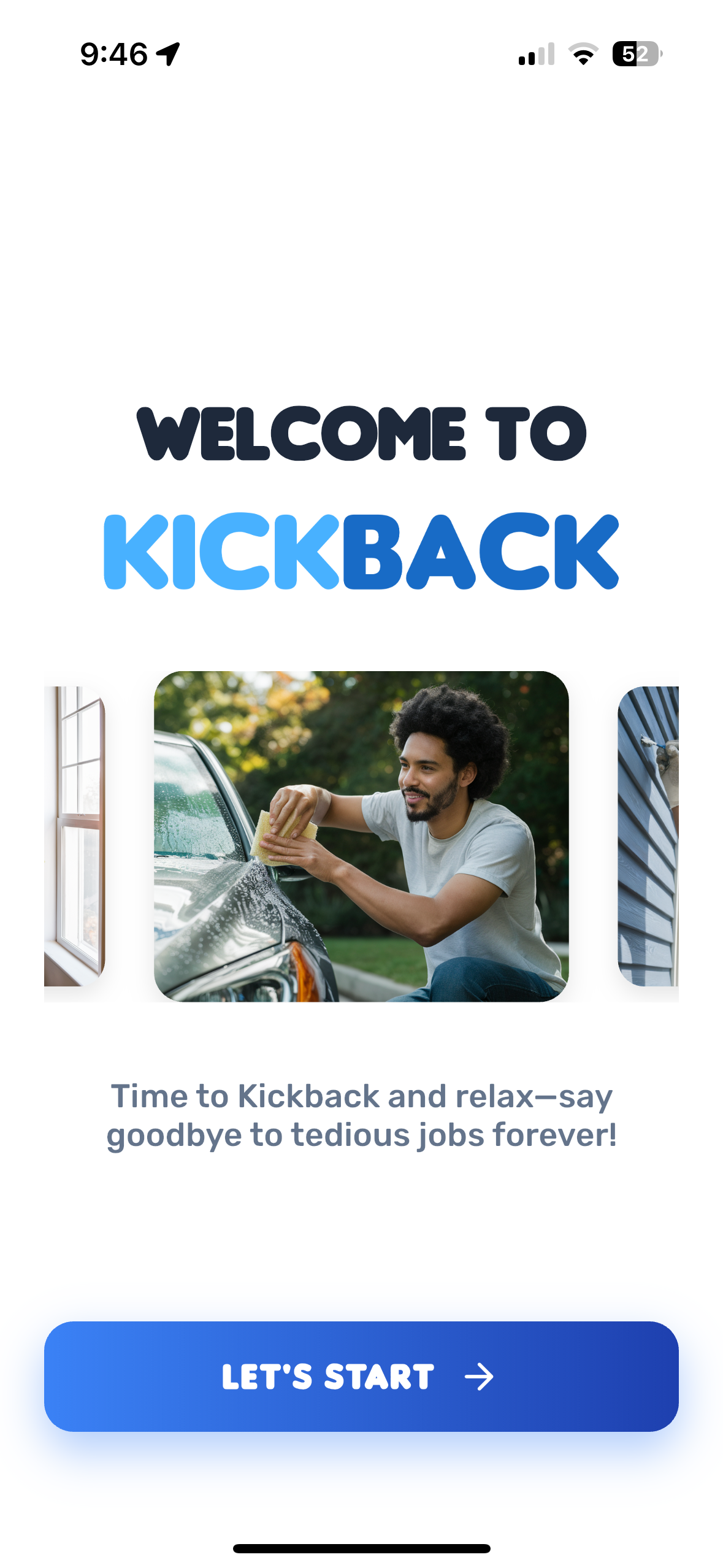It's Time to
Kickback
And Relax 🏖️
Never do tedious work like
cleaning
again!
The Kickback app connects you with local handymen and odd job workers for all your home tasks, post any job in 30 seconds.
As Featured In:
Got something you want done? Get help now!
⚡ Request Help

